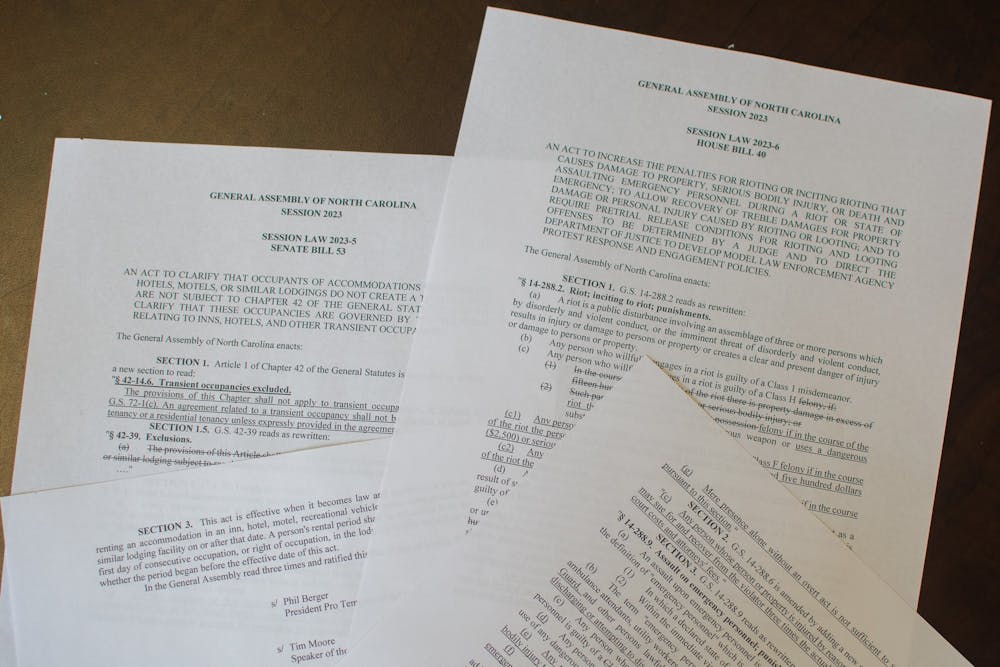Earlier this month, two bills became law without Gov. Roy Cooper’s signature after they passed through the North Carolina General Assembly.
These two bills, House Bill 40 and Senate Bill 53, were both passed during the 2023 legislation cycle. In previous years, Cooper vetoed similar bills.
In a press release, Cooper said he still has worries about H.B. 40, a bill that seeks to control rioting and civil disorder, despite its changes in past months.
"I acknowledge that changes were made to modify this legislation's effect after my veto of a similar bill last year,” he said in a press release. “Property damage and violence are already illegal and my continuing concerns about the erosion of the First Amendment and the disparate impacts on communities of color will prevent me from signing this legislation."
He also said that S.B. 53, the Hotel Safety Issues bill, may keep those in need of housing protection from receiving it.
"This bill was given broad support in the legislature, and there are potential positive modifications being discussed by legislators,” Cooper said in the press release. “However safe housing is sometimes only available from temporary shelter, such as hotels, and I remain concerned that this bill will legalize unfair treatment for those who need protection and this will prevent me from signing it."
Elizabeth Barber, senior policy counsel at the ACLU of North Carolina, said she believes the governor’s choice to not sign H.B. 40 shows his disapproval of the bill.
Joselle Torres, communications manager for Democracy North Carolina, said that because Cooper has vetoed more legislation than any other N.C. governor, some people are unsure of how strong his veto power is. She said the decision to not sign or veto legislation signals the governor's dissatisfaction with laws.
Because the N.C. General Assembly is changing, Torres said she thinks it is harder to repeat what happened with past bills.




